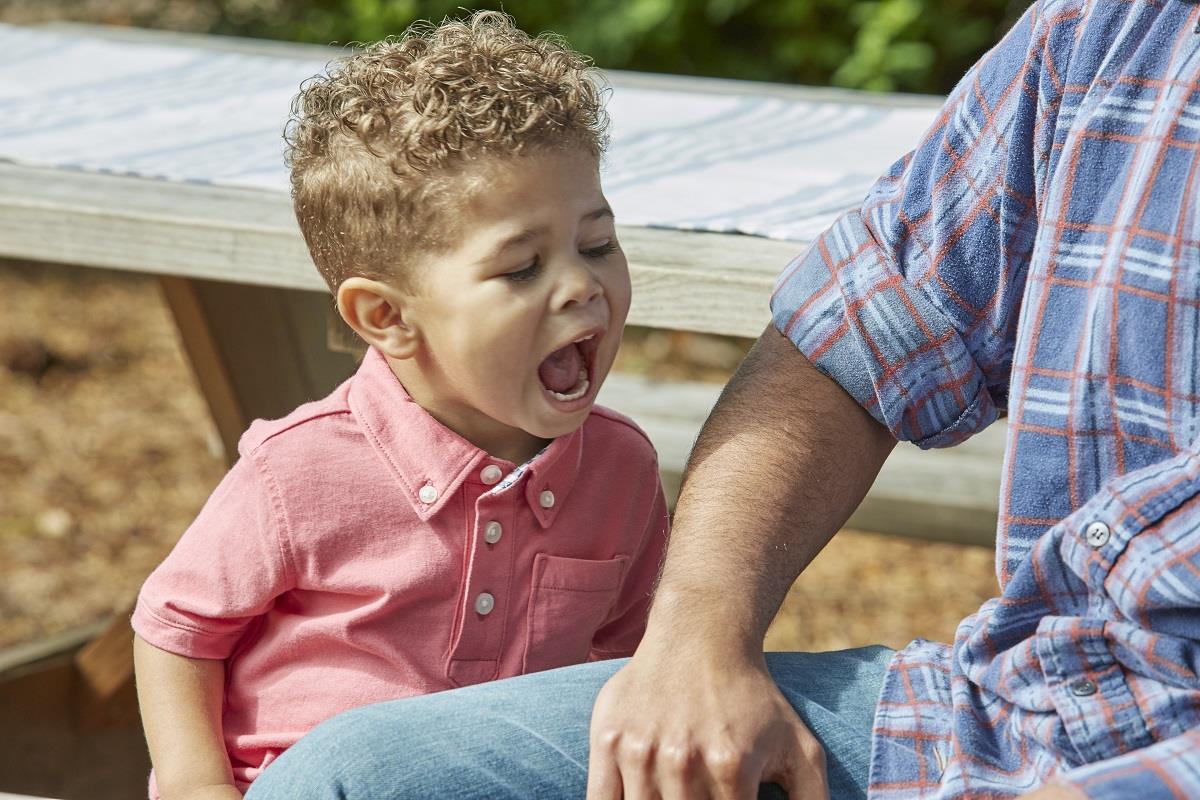Biting: Positive Help for You...and Your Little Nipper-Snapper, Too

Biting is a normal and natural behavior in infants and toddlers. One out of 10 toddlers bites—but, while it may be common, it’s also one of those behaviors that can actually hurt.
Thankfully, biting typically decreases by age 3. By then, children have acquired greater communication and social skills, and biting is no longer the only way children have to express themselves.
What is a parent to do until then? The first step is to understand what a child who bites is trying to communicate with the behavior—and what situations are likely to trigger it.
Once the reason is identified, parents can develop positive strategies to minimize and deal with it when it occurs. After all, while biting may be as normal as tantrums, parents’ goals are to keep everyone safe—parents included!
So Why DO Infants and Toddlers Bite?
Don’t worry, you’re not a bad parent. Biting can be…
- How he explores the world. Young children up to 15 months love textures and sensations, and their mouths are their best-developed tools for exploring—so they use it! Young children also may bite when they are teething.
- Her way of expressing frustration. Before age 2, and before a child develops language skills and self-control, she may bite as a way to express her wants or needs. She may want attention or she may want certain toys for herself. Additionally, if she's facing too many challenging tasks, she may get frustrated and start chomping away.
- His way of saying that he’s overwhelmed. Big emotions such as anger, excitement, and fear are difficult for young children to manage. Some children to react to those feelings by biting; in other words, biting can be a powerful communication tool for children who are too young to express themselves in other ways.
- How she gets her needs met. As any parent knows, young children are quite interested in getting what they want. Because biting often causes a big reaction in adults, biting can be an attempt for a child to get emotional needs met before he is able to express them on his own.
Figuring Out the Why Behind the Bite
If your child starts to bite, try to observe where, when, and what happened immediately before the biting occurred. (In fact, if a child frequently bites, it can be helpful to chart the behavior to look for patterns.)
- Was your child playing alone quietly and suddenly found himself surrounded by other children? Biting could be his way to say he feels overwhelmed. If a child bites because he doesn’t want to share toys, then it’s important to make sure all children have plenty of other toys to play with.
- If a child bites just before nap time, this can alert parents that over-tiredness is a trigger. You might then not make any playdates at that hour, and keep the child calm with quiet activities until he can get the sleep he needs.
Supporting Your Biter with Love & Encouragement
One key to supporting your child who bites is to give him plenty of praise and support when he’s not biting and when he’s expressing himself in ways that are kind.
- Model loving, supportive behavior. Watch closely. If your child is starting to become frustrated or upset, you can guide her to an activity that you know helps calm her. Cuddling up with you and a book may be just the ticket—or perhaps a walk outside or blowing bubbles. You want to defuse the environment or situation that is contributing to heightened feelings.
- Build calm into your parenting routine. According to the National Association for the Education of Young Children, stress-relieving activities can help quiet the biting instinct. Try breathing exercises, kid-friendly yoga, or sensory activities like playing with bubbles, water, or sand.
- Practice positivity. Give your child plenty of positive attention and feedback when he shares a toy, shows self-control, or uses language to express himself. All of these skills are precisely what he needs to transition away from biting. Reward them!
When Is Biting a Real Concern?
According to the Early Childhood and Parenting Collaborative, biting over the age of 3 may be a sign of tactile dysfunction, or extreme sensitivity to touch. Talk to your doctor about developmental screening for more information.




.jpg?la=en&h=800&w=1200&hash=799F5BD6E84A71FB0D1C8E657FE7F226)
